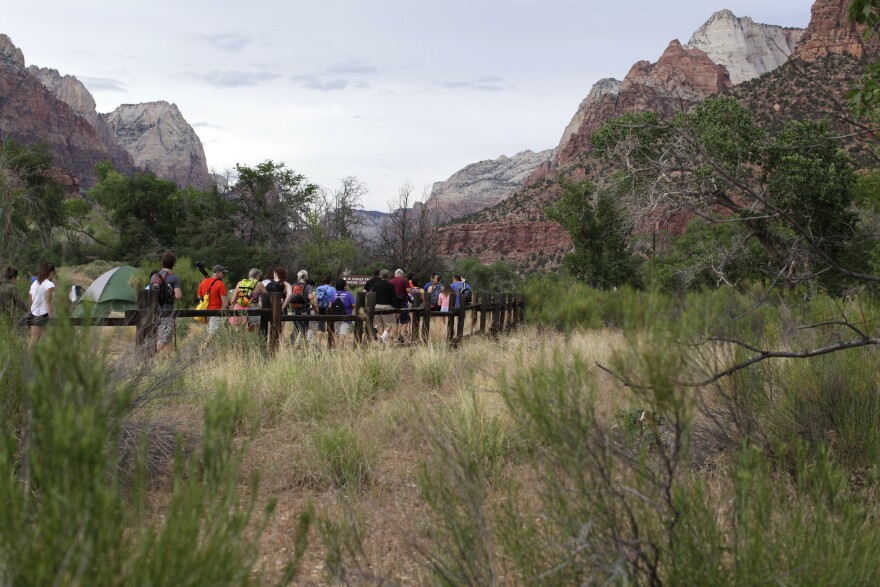The National Park Service released visitation statistics this week showing that five of the top 15 most-visited parks in 2022 are in the Mountain West.
Zion National Park in Utah and Rocky Mountain National Park in Colorado ranked third and fourth for most visitors last year, with about 4.7 and 4.3 million visitors respectively. Both numbers were below 2021 visitor totals.
Yellowstone National Park ranked No. 7 in the list, with about 3.3 million visitors last year. That's a 32% drop compared to 2021's record visitation at the park, likely owing to last June's historic flooding. Glacier, Grand Teton and Bryce Canyon national parks ranked 10th, 12th and 15th for numbers of visitors last year, respectively.
Overall, visits to national parks in 2022 rose 5% over 2021, in line with pre-pandemic levels. While visitation wasn't as high as the record numbers in 2019, the long-term trend shows park attendance steadily increasing. Some parks are piloting reservation systems to help control crowds.
“We are activel , in all parks, looking at our visitation trends and continually trying to determine what's the best way to manage the number of people and how people are visiting sites so that everyone gets the best experience that they can,” National Park Servic e spokesperson Naaman Horn said.
Horn said c ur bing reservat ions at the most popular parks will encourage people to explore other, lesser-known parks.
“A lot of people have their bucket list, like ‘I have to visit Rocky Mountain. I have to visit Zion or Arches or Yellowstone,’” he said. “There’s so many small national parks that get much less visitation…if you wanna try and avoid the crowds, that’s a great way to see historic or cultural resources that are close by.”
The big crowds can also put more pressure on parks, which are historically understaffed. The National Parks Conservation Association released data last year showing that huge increases in visitation between 2011 and 2019 were accompanied by staffing levels dropping 13% at Rocky Mountain National Park and 16% at Zion National Park.
“I've heard superintendents describe managing a national park like managing a small city,” Cory MacNulty, associate director for the association 's Southwest region, said. “The number of people it takes to not only welcome visitors and educate them about these incredible places but also just to do the maintenance, the road infrastructure, the keeping the restrooms clean, just providing the basic services for people to have safe and enjoyable places, experiences in the parks.”
MacNulty said more visitors has meant more graffiti, litter and other negative impacts on the landscapes that national parks are meant to protect. She anticipates park visitation will only keep rising, though, due in part to an anticipated wave of post-pandemic international travelers.
“These are forever parks, they're forever places, and we need to make choices today that are going to make sure that they're protected for the next generation and generations to come,” MacNulty said. “It really is our responsibility as visitors to really understand how we can go in and visit places that protect them for the long term, to really minimize the footprint of every single person that goes in."
Horn advises people to plan ahead for crowds, parking and fees by checking out national park websites before visiting.
This story was produced by the Mountain West News Bureau, a collaboration between Wyoming Public Media, Nevada Public Radio, Boise State Public Radio in Idaho, KUNR in Nevada, the O'Connor Center for the Rocky Mountain West in Montana, KUNC in Colorado, KUNM in New Mexico, with support from affiliate stations across the region. Funding for the Mountain West News Bureau is provided in part by the Corporation for Public Broadcasting.
Copyright 2023 KUNC. To see more, visit KUNC.









